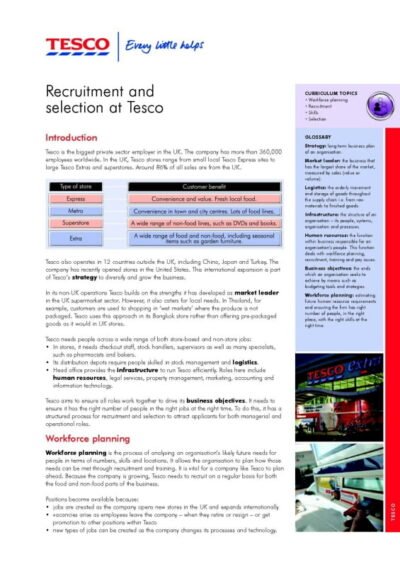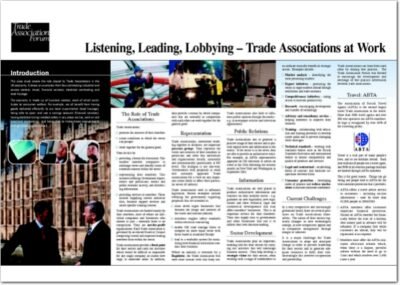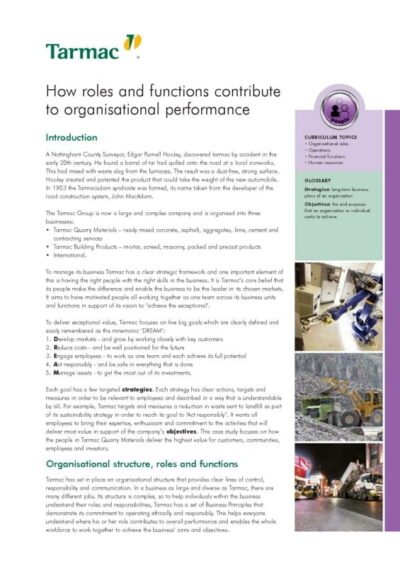Fundamental freedoms are essential rights and liberties crucial for the functioning of democratic societies. These include the freedom of movement, goods, services, workers, and capital. They are codified in international agreements like the Universal Declaration of Human Rights and regional treaties such as the European Union’s Treaty on the Functioning of the European Union.
These freedoms are vital for economic growth, social development, and individual well-being. Freedom of movement allows individuals to travel, reside, leave, and return to a country. It facilitates cultural exchange, tourism, and international cooperation.
The freedom of goods movement enables cross-border trade without unnecessary barriers, promoting economic prosperity, job creation, and consumer access to diverse products. Freedom of services allows cross-border provision and reception of services like finance, telecommunications, and professional services, fostering innovation, competition, and economic efficiency. The freedom of worker movement permits individuals to seek employment in other countries, enhancing labor market flexibility, skills transfer, and addressing workforce shortages.
Capital movement freedom enables cross-border investment and financial transfers, stimulating economic growth, entrepreneurship, and access to finance. These fundamental freedoms collectively contribute to the development and interconnectedness of modern societies, playing a crucial role in shaping global economic and social landscapes.
Key Takeaways
- Fundamental freedoms are essential rights that allow individuals to live freely and participate in society.
- The movement of goods is crucial for economic growth and allows for the exchange of products and resources between countries.
- Breaking down barriers to the movement of services can lead to increased competition and innovation in the market.
- The movement of workers can bring both benefits, such as filling labor shortages, and challenges, such as potential job displacement.
- The movement of capital drives economic growth by allowing for investment and the creation of new businesses.
Movement of Goods: What it Means and Why it’s Important
Boosting Economic Development
Furthermore, the ability to trade goods across borders creates job opportunities and stimulates economic development in both exporting and importing countries. One of the key benefits of the movement of goods is the access to a wider variety of products for consumers. When goods can move freely across borders, consumers have access to a greater selection of products at competitive prices.
Enhancing Consumer Satisfaction
This can lead to higher standards of living and increased consumer satisfaction. Moreover, the movement of goods promotes economic efficiency by allowing resources to be allocated to their most productive uses. For example, countries can specialize in producing goods in which they have a comparative advantage, leading to increased productivity and economic growth.
Fostering International Cooperation
Additionally, the movement of goods fosters international cooperation and peace by creating economic interdependence between countries. When countries are economically interconnected through trade, they have a vested interest in maintaining peaceful relations and resolving conflicts through diplomatic means.
Movement of Services: Breaking Down Barriers
The movement of services is another fundamental freedom that is essential for promoting economic growth and development. Services encompass a wide range of activities, including financial services, telecommunications, transportation, tourism, and professional services. The ability to provide and receive services across borders is crucial for promoting innovation, competition, and economic efficiency.
Additionally, the movement of services creates job opportunities, stimulates economic development, and enhances consumer choice. One of the key benefits of the movement of services is the promotion of innovation and competition. When service providers can operate across borders, they are exposed to new ideas, technologies, and business practices.
This exposure can lead to greater innovation in service delivery and increased competition, which can ultimately benefit consumers through lower prices and improved quality. Furthermore, the movement of services promotes economic efficiency by allowing resources to be allocated to their most productive uses. For example, when companies can access a wider market for their services, they can achieve economies of scale and specialization, leading to increased productivity and economic growth.
The movement of services also plays a crucial role in promoting job creation and economic development. When service providers can operate across borders, they can access new markets and create job opportunities in both their home country and abroad. This can lead to increased employment opportunities, higher incomes, and improved living standards for individuals and communities.
Additionally, the movement of services fosters international cooperation and cultural exchange by facilitating interactions between people from different countries. This can lead to greater understanding and appreciation of different cultures, as well as the sharing of knowledge and expertise.
Movement of Workers: The Benefits and Challenges
The movement of workers is a fundamental freedom that allows individuals to seek employment opportunities in other countries. This freedom is essential for addressing labor shortages, promoting skills transfer, and fostering labor market flexibility. However, the movement of workers also presents challenges related to labor market competition, social integration, and the protection of workers’ rights.
One of the key benefits of the movement of workers is the ability to address labor shortages in certain industries or regions. When countries experience a shortage of skilled workers in specific sectors, they can benefit from the ability to attract foreign workers with the necessary skills and expertise. This can help businesses meet their labor needs, promote economic growth, and ensure the continued functioning of essential services.
Additionally, the movement of workers promotes skills transfer by allowing individuals to gain new experiences, knowledge, and expertise in different work environments. This can lead to increased innovation, productivity, and competitiveness in the labor market. However, the movement of workers also presents challenges related to labor market competition and social integration.
When foreign workers enter a new labor market, they may compete with local workers for job opportunities, leading to concerns about wage depression and job displacement. Additionally, the integration of foreign workers into local communities can present social challenges related to language barriers, cultural differences, and social cohesion. Furthermore, the protection of workers’ rights is an important consideration when it comes to the movement of workers.
It is essential to ensure that foreign workers are treated fairly and have access to decent working conditions, social protection, and opportunities for career advancement.
Movement of Capital: Driving Economic Growth
The movement of capital is a fundamental freedom that allows individuals and businesses to invest and transfer financial resources across borders. This freedom is essential for promoting economic growth, entrepreneurship, access to finance, and international cooperation. However, the movement of capital also presents challenges related to financial stability, regulatory harmonization, and the prevention of illicit financial flows.
One of the key benefits of the movement of capital is its role in driving economic growth and entrepreneurship. When individuals and businesses can invest their financial resources across borders, they can access new opportunities for growth and expansion. This can lead to increased investment in productive activities, job creation, and innovation.
Additionally, the movement of capital promotes access to finance by allowing individuals and businesses to access a wider range of financial products and services. This can lead to increased financial inclusion, improved access to credit, and enhanced opportunities for wealth creation. However, the movement of capital also presents challenges related to financial stability and regulatory harmonization.
When financial resources move across borders, it can create volatility in financial markets and pose risks to financial stability. It is essential to have effective regulatory frameworks in place to ensure that financial markets are well-regulated and resilient to potential shocks. Additionally, it is important to harmonize regulatory standards across different jurisdictions to promote transparency, accountability, and investor protection.
Furthermore, the prevention of illicit financial flows is an important consideration when it comes to the movement of capital. It is essential to combat money laundering, tax evasion, corruption, and other illicit financial activities that can undermine economic development and social progress. Effective measures are needed to ensure that financial resources are used for legitimate purposes and contribute to sustainable development.
Ensuring the Protection of Fundamental Freedoms

Effective Legal Frameworks
One way to ensure the protection of fundamental freedoms is through effective legal frameworks at both national and international levels. It is essential for countries to have robust legal systems that protect human rights, promote equality before the law, and ensure access to justice for all individuals. Additionally, international agreements and conventions play a crucial role in setting standards for the protection of fundamental freedoms at a global level.
Promoting Respect for Fundamental Freedoms
Furthermore, it is important for governments to implement policies that promote the respect for fundamental freedoms in all areas of society. This includes promoting inclusive economic policies that create opportunities for all individuals to participate in economic activities and benefit from economic growth. It also includes promoting social policies that address inequalities, discrimination, and social exclusion.
Businesses’ Role in Upholding Fundamental Freedoms
Moreover, it is important for businesses to uphold fundamental freedoms in their operations by respecting human rights standards, promoting fair labor practices, ensuring environmental sustainability, and contributing positively to local communities.
The Future of Fundamental Freedoms: Opportunities and Challenges
The future of fundamental freedoms presents both opportunities and challenges for individuals, societies, businesses, and governments around the world. On one hand, technological advancements present new opportunities for promoting fundamental freedoms through digital connectivity, e-commerce platforms, remote work arrangements, and online education. These advancements have the potential to enhance access to goods, services, jobs, information, education, healthcare, and social connections.
On the other hand, technological advancements also present challenges related to data privacy, cybersecurity threats, digital divides between different populations or regions within countries or globally. Furthermore globalization presents opportunities for promoting fundamental freedoms through increased international cooperation on issues such as climate change mitigation efforts or global health crises response efforts. However globalization also presents challenges related to geopolitical tensions trade disputes or migration pressures.
In conclusion it is essential for all stakeholders including governments international organizations civil society organizations businesses individuals work together towards ensuring that fundamental freedoms are respected upheld promoted in order to achieve sustainable development peace prosperity for all individuals societies around the world
If you are interested in learning more about the movement of goods and services, you may want to check out the case study on Castrol, a global supplier of lubricants and related products. This case study explores how Castrol has expanded its operations internationally and navigated the challenges of global trade. You can read more about it here.
FAQs
What are the fundamental freedoms in the European Union?
The fundamental freedoms in the European Union are the free movement of goods, services, workers, and capital. These freedoms are enshrined in the EU treaties and are essential principles of the single market.
What is the free movement of goods?
The free movement of goods is one of the fundamental freedoms in the EU, which allows for the unrestricted movement of goods between EU member states. This means that goods can be bought, sold, and transported across borders without barriers such as tariffs or quotas.
What is the free movement of services?
The free movement of services is another fundamental freedom in the EU, which allows for the provision of services across borders within the EU. This means that service providers can operate in different member states without facing discriminatory barriers.
What is the free movement of workers?
The free movement of workers is a fundamental freedom that allows EU citizens to live and work in any other EU member state. This includes the right to seek employment, work, and reside in another EU country without discrimination.
What is the free movement of capital?
The free movement of capital is a fundamental freedom that allows for the unrestricted movement of capital and investments between EU member states. This includes the free movement of money, investments, and financial assets across borders.
How do the fundamental freedoms benefit the EU?
The fundamental freedoms of the EU contribute to the single market, which promotes economic growth, competition, and consumer choice. They also support the EU’s goal of creating a more integrated and cohesive European economy.
 Protecting the marketing mix through intellectual property rights (MP3)
Protecting the marketing mix through intellectual property rights (MP3)  Recruitment and selection (PDF)
Recruitment and selection (PDF)  Trade associations at work (PDF)
Trade associations at work (PDF)  Recruitment and selection in the energy industry (PDF)
Recruitment and selection in the energy industry (PDF) 